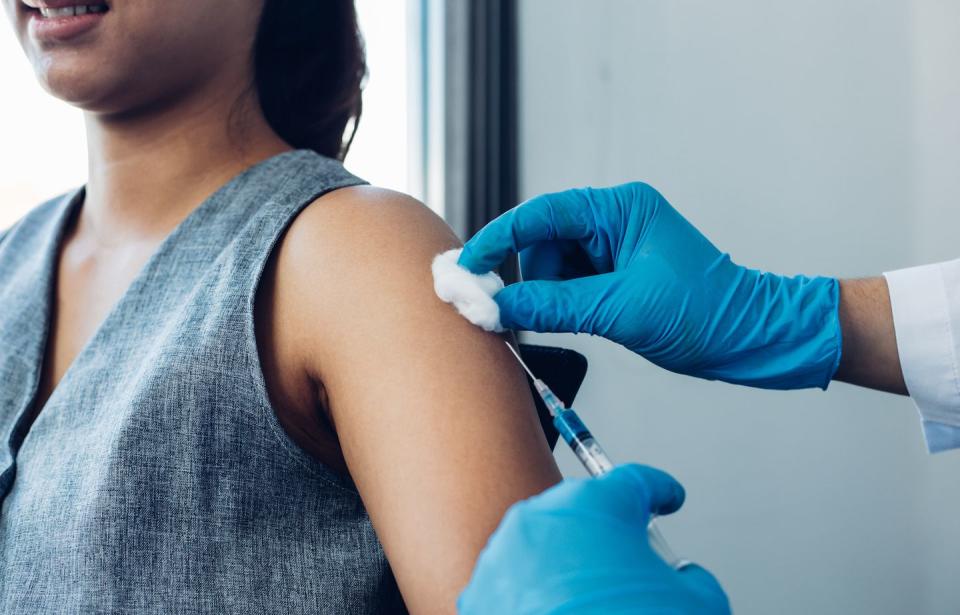The four COVID symptoms you'll get if you're double vaccinated

Getting vaccinated against COVID-19 provides you with an invaluable amount of protection against a severe case of the virus. But, as the scientists have been eager to remind us all the way through the pandemic, it's not a 'silver bullet'. You can still contract - and pass on - COVID once you're vaccinated with one or two doses of the jab.
And what's particularly interesting is that new research has determined the symptoms you may get if you catch coronavirus after being double vaccinated, can be different from the regular, key symptoms. In fact, there are four symptoms in particular that have shown themselves to be most common among the double jabbed - and none of them feature on the UK's official list.
As a reminder, the three physical signs that are officially listed as indicators of COVID in the UK are a high temperature, a new, continuous cough, and a loss or change to sense of smell or taste. But research from the ZOE COVID Symptom study - which asks volunteers to monitor any symptoms they have via an app, as well as logging COVID test results and whether they've been vaccinated - has found a different symptom pattern in those who have received two doses of the COVID vaccine.
The research, which has attracted hundreds of millions of self health reports from users around the country, found that the highest ranking COVID symptoms after two vaccinations were:
Sore throat

In another part of the report, the ZOE study said it had found that "fewer symptoms were reported over a shorter period of time by those who had already had a jab, suggesting that they were falling less seriously ill and getting better more quickly."
This indicates that the vaccines are working effectively in minimising the spread of severe disease, which will reduce hospitalisations and deaths. In the UK we have the Astra Zeneca, Pfizer and Moderna vaccines available, and while each have different efficacy rates, all will provide an important level of immunity to COVID.

These recent findings come at a similar time to calls from a group of scientists for the UK to expand its official list of COVID symptoms. In a recent article on the British Medical Journal (BMJ), experts including Professor Calum Semple (who sits on the government’s Sage committee) and Dr Alex Crozier, a biomedical researcher from UCL, pointed out that "unofficial" symptoms are now often most commonly seen in positive COVID cases.
Such symptoms include headache, a blocked and/or runny nose, weakness or fatigue, muscle aches, loss of appetite, and a sore throat. The scientists urged the government that "many infected people do not present with the symptoms used in the UK case definition," and the ZOE study's findings appear to corroborate that.
The previous 'traditional' symptoms still outlined on the government website - persistent cough, anosmia (loss of smell), and fever - were all found to rank way down the list of most commonly seen symptoms among the double vaccinated (as well as the partial or unvaccinated), at positions 8, 11, and 12 respectively.
It's an important reminder that COVID won't necessarily brandish all the hallmarks it's previously been known for, if you contract it now. So pay attention to your health, isolate if you're not well, keep following the mask-wearing and hand-washing guidance, and hopefully we can keep transmission at a minimum.
Follow Cat on Instagram.
You Might Also Like


